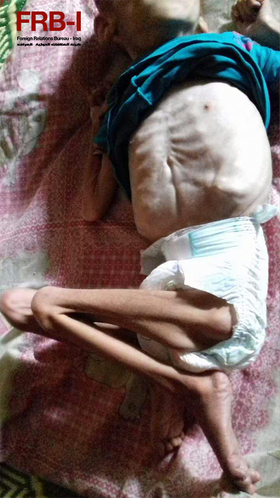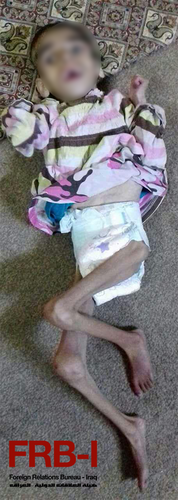There are still civilians who are victimised in the city on daily basis in both sides of Mosul. Many displaced people have no home to go back to, and are suffering from severe health problems, especially children.
The Iraqi government has failed to provide basic services, particularly in the cities that have been affected during the battles between IS militants and Iraqi militias, including Mosul. Additionally, rampant corruption and mismanagement have inflicted all of Iraq's public services, in particular the health sector, since the US-led invasion in 2003.
The city of Mosul was retaken from IS a year ago, yet the Iraqi government has failed to rebuild the public hospitals and the healthcare centres destroyed during the fierce fighting in the city. The Ministry of Health has failed to meet the civilians growing needs for healthcare in Mosul, such as those related to maternity and childcare.
Anfal's family had returned to their home after leaving the displacement camp in northern Mosul but found it completely destroyed. Subsequently, they lived in al Wahda district which is located in the right side of the city. They were eventually forced to return to the displacement camp because the city lacks the basic services and utilities, most importantly the healthcare treatment for their child.
The Iraqi Ministry of Health has failed to provide essential healthcare services for its citizens. According to London School of Economics and Political Science (LSE), Iraq has no comprehensive health policy. The Iraqi health service in the 1970s and 80s was one of the most advanced in the Middle East. Conversely, at the present, most of the country’s 1,717 primary healthcare centres have no running water or electricity, the 197 hospitals do not have enough equipment or expertise to cope with the needs of the nation.



 RSS Feed
RSS Feed